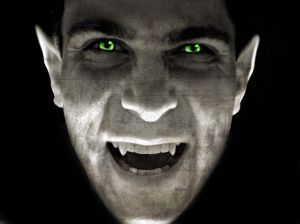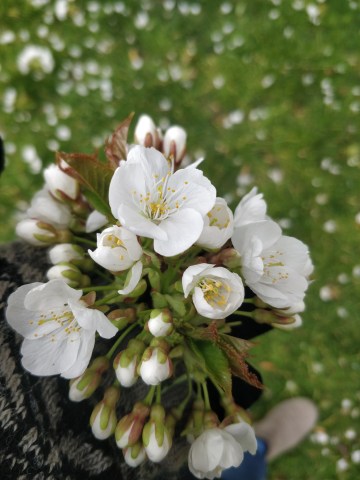Ugly

So a few weeks ago, scientists dug up the corpse of Richard III. Analysis of the skeleton showed that he had a twisted spine, though there was no indication of a withered arm. Members of the ‘Richard the Third Society’ were very excited by this find, as they seek to ‘rehabilitate’ a character who was portrayed by Shakespeare as both morally and physically grotesque. (Curiously enough, in Scotland, a similar project is underway to ‘rehabilitate’ Macbeth who was apparently, a pretty okay kinda guy. Because when the three witches start doing rhyming couplets in that particular play, we naturally take it as primary historical evidence… anywho…)
Productions of Richard III in recent years have often pulled back from the almost comedic villain of Lawrence Olivier sliding his way through crook-backed flourishes of murder, but the simple fact is – he was written as a hunchback monster, and so he remains. And this kinda leads us to a fairly obvious truth: that in mass modern culture, evil is ugly. In fantasy this is particularly apparent. Orcs dribble and drool their way across the page, rending raw flesh from the still-hot bones of their victims. Monsters more skin than flesh limp and lurch; zombies gnaw pasty-faced and great, drooling aliens with many rows of nasty biting teeth, spring out of the dark places ready to strike. Thrillers too are frequently guilty of the crime – scarred men with dark pasts battle beautiful heroes who are only out to protect their families, damnit! Sinister corporate men with really bad skin pursue beautiful youngsters with amazing hair. Here’s a question for you – how many bald heroes can you name? Three or four? Tops? And how many movies have you seen where the eternal symbol for ‘I am now going to become a rugged man who will do battle with my enemies’ is a symbolic shaving of an unkempt beard?
Even if the ‘ugly’ isn’t a physical ugly, it can perhaps be seen in what the sociologists would call an ‘otherness’ instead. Take again for example, the vast number of British Baddies who infest Hollywood. There’s nothing like the sinister slide of an upper class accent to make you feel that yeah, this guy isn’t only Not One Of Us, he probably steals sweeties from children. I love looking at villain’s faces on the silver screen, because they’re often so much more interesting than the heroes. Lines of torment and ages of sin are written on a villain’s face, and you wouldn’t call them handsome – not compared to the Whoever-It-Is with the Heroic Jaw and the Big Hair and the Steady Gaze of all universal heroes ever. I guess what I’m saying is – even if a villain isn’t somehow defined as ‘ugly’ or ‘other’, nor do they regularly fall into that very narrow line of anonymous faces that are splashed across every movie poster and cinema screen as if, really, there’s much difference between that action hero and this.
Not every genre is affected by this, and increasingly books – especially fantasy – are actively running away from it. But I think in any big blockbuster, or suitably trashy bit of written word, we can instantly identify the man with the receding hairline, protruding lip, dodgy accent, sweaty skin – whatever – as the baddie just BECAUSE. And that’s not only a bit dull, it’s also dead on stupid. Not least because ‘ugly’ is, like most things, a subjective point of view. In 1500s Japan the samurai were repulsed – horribly repulsed – by the body hair of the Europeans, while ginger hair was considered the mark of utter shame. In 1600s England it was considered thoroughly vulgar to be tanned; in 1700s France the black beauty wart was the stamp of taste and in the 1800s if you didn’t have a set of facial whiskers to kill a cat with, you really weren’t trying. In parts of Brazil and Africa, scars are a badge of pride and sophistication, while the size-zero models who flounce across the fashion stages of Europe are, to my eyes, hideously, dangerously thin examples of a physicality lived on the edge of collapse. (Likewise, I’ve got to admit, I’ve always felt that overly-muscly male bodies, while apparently I’m supposed to be allured, are too often a symbol of a man who’s spent a great deal of time at the gym, but not enough time working on his language and trigonometry skills, which seems a tragic loss. But hey – that’s just me.)
To put it another way – and aware that I have been guilty of the writing of some truly unpleasant looking villains in my time – writing ‘ugly’ and writing ‘other’ may be a useful shorthand for proclaiming ‘get uneasy now’, but it’s also a really lazy way and ultimately, I suspect, only goes to date the time in which the work was written.






